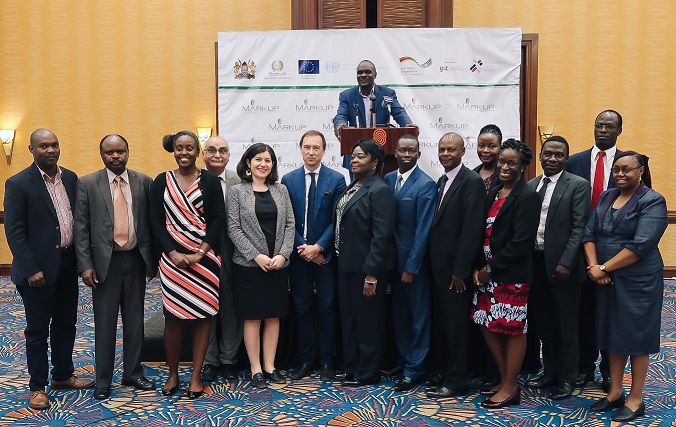MARKUP Kenya Launched by UNIDO
MARKUP aims at improving the competitiveness of small-scale farmers in 12 counties of Kenya through the enhancement of quality and safety standards in a variety of crop value chains, including mango, passion fruit, avocado, tea, coffee, horticulture, herbs and spices, tea and nuts. MARKUP will strengthen the extension services; promote the concept of good agricultural practices and compliance requirements for better market access; and build the capacity of the inspection, testing and certification systems to address the gaps along the entire supply chain of the identified products.
This will lead to increases in the quality and volume of the produce; at the same time, this will enhance the competitiveness of Kenyan agriproducts to access markets; generate more foreign exchange; and improve the socio-economic conditions of the farmers.
Currently, Kenya’s horticulture is mainly exported to the European Union (45 per cent of the country’s exports); the project will be implemented in partnership with the International Trade Centre (ITC) and the German Technical Cooperation (GIZ) and, at regional level, with the East African Community (EAC). Nationally, UNIDO will work with different stakeholders including the Kenya Plant Health Inspectorate Services (KEPHIS), the Horticultural Crops Directorate (HCD), the Kenyan Bureau of Standards (KEBS) and the Ministry of Agriculture, Livestock and fisheries. The EUR3.7 million MARKUP project is to be implemented over a period of 4 years, and similar activities with similar budgets are underway in other EAC countries.
In Kenya, agriculture (crop and livestock production) contributes to an average of 27.3 percent of the national GDP and provides a source of livelihood to most Kenyans. It also contributes about 26 per cent indirectly to GDP through linkages with other sectors such as agro-based manufacturing, transport, wholesale and retail trade.


